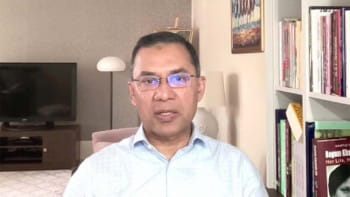Paranoia on social media?

As per a famous report that surfaced on social media about a research done by some British epidemiologists, the worst-case scenario for the coronavirus could be marked by the death of about 2.2 million Americans if the disease was left to spread unchecked.
It is a terrifying document, especially for a country where the curve still hasn't peaked yet. Words like 'incubation period' and 'gamma distribution' are heavy enough for the Western world but when you find yourself consuming more of such news and reports within a four-walled setup with morbid visuals, the paranoia could subconsciously turn into anxiety. This is what we call 'Doomsurfing' or 'Doomscrolling'; that is falling into deep, twisted rabbit holes filled with coronavirus or any such content that ultimately causes mental stress, paranoia, and lack of a good night's sleep. According to tech experts, doomsurfing in the times where fake and unverified news takes up about 30% of social media content can cause mass paranoia, anxiety, and confusion among the millennials. So, what can we do to overcome this?
Have you tried logging off?
Even though it is important to stay informed, what dosage of the grim news is healthy needs to be considered. Even though it is difficult to stay off the screen during this time where digital presence is the only way to remain connected to the world, it is essential for us to find a balance between how much of what we allow to affect our wellbeing. As Facebook recorded a record surge in its usage since March'20 worldwide, it is evident that people are relying more on social media platforms for news and connectivity. But, this may lead to an unwanted stream of information clogging up our heads with even questionable authenticity. If you find yourself indulging with an undying curiosity for things beyond your control, try logging off from social media routinely for some hours. This may help you regulate the amount of time you spend on your phone and the news you consume.
Maybe mute some groups, unfollow some pages?
The coronavirus crisis has made the internet feel unexpectedly social. Every day, there's an explosion of new and creative kinds of digital community-building happening, as we find new ways to use technology to replace some of the physical proximity we're losing. People are talking more about underlying social issues and how 2020 has turned out to be so far is the reason why some people are even coming up with new conspiracy theories every day. News and discussions are surfacing, leading to the spread of more such vulnerabilities. If you're exposed to such groups or pages that intoxicate your logical thinking ability with panic-inclined news, leaving, muting or even unfollowing can save you from hours of digging into topics that don't need that much attention.
Reduce the passive usage of social media
It is the time to stay connected with family, friends, and colleagues through social media and we are all trying to do this one way or the other. But there's a fine line between actively using social media and passively using social media. To actively use social media, try establishing one-on-one connections with people by sending text messages or DM them instead of passively scrolling through your feed, hoping their activity pops up. Research has found that using social media actively makes us feel better than consuming it passively so maybe slow down on that obsessive scrolling you do all day without a cause.
Be on the lookout for productive alternatives
Even though the coronavirus pandemic has impaired the growth of art, entertainment and overall media activity, artists have still found out ways to entertain their audience through live sessions and streaming their shows. Art exhibitions, online events, webinars and various other entertainment alternatives are now held online with global accessibility. No matter what your location is, you can still watch your favourite artists doing what they do best. A daily healthy dose of such content can take your mind off from the ever-present circulation of negative news.
During the quarantine period, a mindless habit of meaninglessly scrolling through social media feeds hoping for something to give you a reason to think might develop subconsciously. This habit, if it becomes the reason you're experiencing mental discomfort can be called the curse of doomscrolling. It is not very tough to overcome if you know what matters, and what doesn't.


 For all latest news, follow The Daily Star's Google News channel.
For all latest news, follow The Daily Star's Google News channel. 



Comments